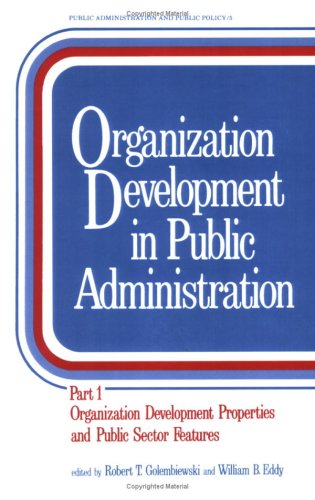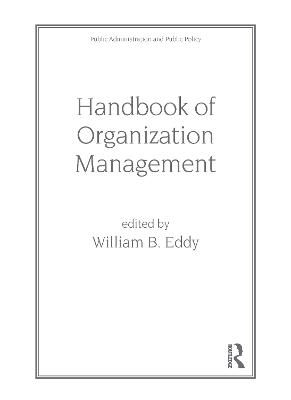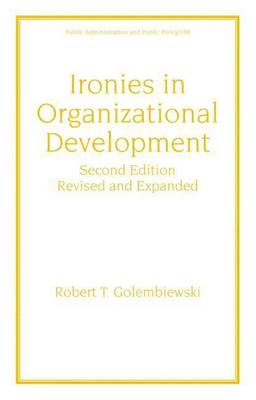Public Administration and Public Policy
2 primary works • 4 total works
Book 5
Organization Development in Public Administration
by Robert T Golembiewski and W. B. Eddy
Book 19
The public administrator just not benefit from any analytic tool plan or design, no matter how well thought out, unless it is implemented successfully. Handbook of organisation management addresses the challenges managers face when trying to achieve desired results in public organisations, stressing the integration of both techniques and personal skills.
Written by leading experts in their respective fields each topic is treated from the manager's point of view. In five distinctive sections this comprehensive practical guide offers an invaluable overview of major concerns of public managers… discuss is the management of public employees… examines overall organisation issues and management skills… illustrates several specific tools and techniques necessary for successful public management… and explores the ongoing interactions of organisations with the outside world.
Moreover this extraordinary book presents a final chapter surveying concepts and methods examined throughout the text and summarising the major characteristics of the public agencies environment. In this environment of rapid change mounting pressures and increasing sophistication practitioners and students of public management or administration as well as educators and managers in business, cannot afford to be without Handbook of Organisation Management!
Presents organizational behaviour from a marketing perspective, offering examinations of standard topics, areas that deserve more attention and emerging issues that will affect the future of OB. Subjects that contribute to expanding demand for OB theory, approaches and results are explored.
The practice of organization development has by and large been quite successful, as evidenced by the recent proliferation of OD programs in higher education and its widespread application in business environments. Despite these successes, says Robert Golembiewski, or perhaps because of it, practitioners can point to too little translation of individual successes into broader analytic frameworks. This basic irony is the motivating force behind this book. Robert Golembiewski, a leading intellectual force in the field since its inception, takes stock of where OD has been and where it is going. His purpose is to motivate the committed practitioner to develop frameworks that reflect an intellectual grasp of the field and can in turn help further enrich practice.
Ironies in Organizational Development argues that the field does quite well, in general; but in numerous particulars it can do much better, with only a modest investment of wit and will. The ironies of which the title speaks are the relative successes in some categories of practice, coupled with areas where opportunity for improvement exists. Golembiewski notes that some of the chapters will be perceived as challenges by some practitioners and theorists and encourage despondency in others. Although many have been previously published, the sources have in some cases been obscure or inaccessible, and most of these chapters will be new to the organizational development practitioner. All have been vigorously revised and updated for book publication.
As an overview of the current state of the art of organizational development, this volume will be of interest to old hands in the field as well as new specialists, managers facing the challenge of continuous change in organizational life, and researchers in organization behavior and theory, including social psychologists. The book is self-consciously oriented toward where organizational development is going-and where it has been only as a basis for understanding its future.



